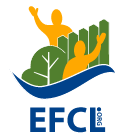Going back more than a decade, Riverdale Community League’s (RCL) sustainability journey has been an impressive story and the start of a grassroots city-wide movement to encourage green energy. At the heart of that journey is retired physician and Edmonton Federation of Community Leagues (EFCL) board member, Dr. Raquell ‘Rocky’ Feroe. As a medical doctor, Rocky combines the environmental and health benefits of sustainable energy. She has been involved with Riverdale’s sustainability charge for over a decade. Rocky took the time to sit down with me to walk me through Riverdale’s efforts.
Riverdale has a long history of sustainability, dating back all the way to the Cree settlement that established itself after the construction of Fort Edmonton, who were emblematic of what it means to be truly sustainable, taking only what they needed and living in harmony with their environment. The First Nations peoples in the area were later pushed out by British colonial powers to usher in a new, decidedly unsustainable way of life, one that has led to the numerous environmental problems we are plagued with today, climate change among the worst. Riverdale CL continues to fight for First Nations rights and reconciliation, having founded their Reconciliation Committee in 2014. More on the history of sustainability in Riverdale can be found in this compelling history written by Allan Shute.
RCL’s sustainability work began in 2005, when Dr. Rocky Feroe contracted local energy specialists, Carbon Busters, to complete an ASHRAE Level 2 energy audit on Riverdale’s hall. The audit provided the League with a detailed list of energy conservation measures (ECMs) along with an economic breakdown, GHG emissions reduction and carbon return on investment for each recommended ECM. It also prioritized the recommendations into three categories based on financial investment versus energy reduction, where more conservative “light green” ECMs represent low-cost opportunities resulting in a relatively smaller energy reduction while more ambitious “deep green” ECMs represent high-cost opportunities resulting in a significantly greater energy reduction. This allowed the League to prioritize upgrades based on cost and energy reduction, deciding how “deep” they wanted to go in their energy reduction upgrades. The audit also provided an additional metric called carbon return on investment (CROI), measured in kg CO2e/$, that measures environmental versus cost. This measurement provides a useful way to look at energy conservation measures since it gets the customer thinking in terms of carbon reduction.
After the audit report was submitted to Riverdale CL, Riverdale’s board of directors passed a motion committing the League to become net zero (net zero buildings generate as much energy as they consume each year). They agreed to achieve this by implementing the light green ECMs recommended in the audit report, which included a building-wide LED lighting retrofit, the installation of occupancy sensors, and smart thermostats that allow for temperature setbacks and monitor building occupancy. All told, the upgrades cost the League about $1,000. To get the rest of the way to net zero, the League decided to purchase renewable energy credits (RECs), with a plan to continue investing in green infrastructure for their hall until they reach true net zero.
Riverdale’s next big win came in 2013 when, along with 8 other Leagues, they won a 1.25 kW roof-mounted solar photovoltaic system from the EFCL. The system was installed on the roof of the “Riverdale House”. While small, the system illustrated the power of solar energy to the League, and in 2017, the Riverdale successfully applied for the EcoCity Edmonton grant and installed an 8.7 kW ground-mounted “solar gazebo”, resulting in a combined generating capacity of 10 kWDC, saving the community league over $1,000 per year on their hall’s utility bill.
Riverdale has inspired other Edmonton Community Leagues to work toward sustainability and green energy technology. Rocky Feroe, along with Aspen Gardens Community League, Strathcona Community League, the EFCL, and the City of Edmonton, contributed to the creation of the Green Leagues program, which supports and advises Community Leagues with their sustainability and energy transition work.

Since completing the work detailed above, RCL has championed renewable energy and energy efficiency in their community, hosting sustainability speakers at their hall, encouraging neighbours to install solar and improve the efficiency of their homes, encouraging ecology with installations such as bee hotels, and building a community garden. The ultimate goal of the Green Leagues program is to help Community Leagues become leaders in sustainability in their communities, but RCL, with little help from the Green Leagues program or the EFCL, has gone above and beyond in their commitment to promoting sustainability and green energy practices among residents. Riverdale still has a sustainability committee headed by their Sustainability Directors, Lindsay Zatylny and Kristine Kowalchuk. True environmental stewards, sustainability is one among many areas in which Riverdale Community League thrives.
You can find more on Riverdale’s story by visiting their website!




